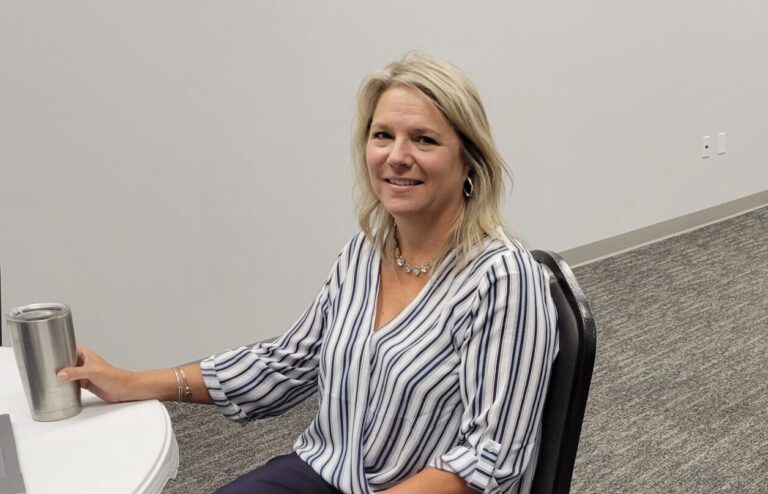Food banks in Illinois distribute food to people who need it. And that food comes from many sources, like retailers, food manufacturers and the public. Now, a state program is in place to make it easier for farmers to contribute the food they raise to food banks.
This month, Governor J-B Pritzker signed HB2879, which turns a two-year, USDA-funded Farm to Food Bank pilot program into a permanent, state-funded operation. According to the governor’s office, the Illinois Department of Human Services will administer the program, with an initial $2 million investment in Fiscal Year 24. Farmers can find out more about the program at the Feeding Illinois website: feedingillinois.org/farmers .
IPM reporter Jim Meadows asked Eastern Illinois Food Bank president and CEO Kelly Daly about the program.
Kelly Daly: That’s been a relatively new supply line that we’ve been working on for the past few years. And the Farm to Food Bank Program is a program that has been in a pilot phase for three years through Feeding Illinois; the Eastern Illinois Food Bank is a part of the feeding Illinois Association. And the Farm to Food Bank program is just a win-win-win. It’s a win for food banks, it’s a win for farmers, and it’s a win for the neighbors that we’re serving in our community. It allows farmers to work directly with food banks and have that food reach the table of someone who might not otherwise be able to have it.
JM: So this is food that the farmer has produced that they are donating to food programs like yours.
Kelly Daly: That is correct. The farmers are generously donating that product. There is a fee that we are assisting with for the pick-and-pack costs and the value-added cost, because we know that that comes at a cost to the farmer. So, if they’re willing to donate the product, we’re willing to step up and help them out with some of those costs.
JM: Is that where the government funding comes in? Is that what it’s paying for?
Kelly Daly: That is correct. The Farm to Food Bank program helps cover some of those pick-and-pack fees when the product is donated. And I think there are also some small variations where the farmer gets paid for some of the product that they are distributing to food banks.
JM: So pick-and-pack doesn’t involve getting the product, whatever it is, in a form that you can use?
Kelly Daly: Yeah, we can handle a truckload of corn, we can get volunteers in to sort those. But the processing fees for milk and dairy and meats, that’s definitely a cost, or a process that we can’t support here at the food bank with our own hands. We are able to cover some of those costs, though with some of this grant funding that has been made available through this program.
JM: The food that is donated, is some of this the farmer just setting aside part of their crop? Is some of this food that would have not made it to market that would have gone to waste?
Kelly Daly: Yeah, the beauty of this program is, the farmer has lots of options. He can set aside a part of his crop and make that available to food banks. But there is that part of the crop that isn’t grocery store-worthy, let’s say. And those seconds and those off-color. And we’re able to take that product and make use of it.
JM: It’s still food that’s considered perfectly edible.
Kelly Daly: Absolutely. We don’t distribute anything out of the Eastern Illinois Food Bank that isn’t perfectly edible. The one rule that I have is I always look at the product that comes in and ask myself if I would eat that. And if I’m not willing to eat it, we’re not going to distribute it.
JM: So the Eastern Illinois Food Bank, are you taking contributions from your immediate area? Or is it going beyond that around the state?
Kelly Daly: The beauty of our network through Feeding Illinois is that we’re able to share with our sister food banks in the state. And so, if the food bank in Southern Illinois receives a large donation of peaches that is beyond what they’re able to distribute in their network, they’re sharing that with us. And likewise, the sweet corn that has been donated, when we’re heavily rich on that, we share with the other food banks, so that we can ensure that all the neighbors in Illinois are receiving the product that they need.

